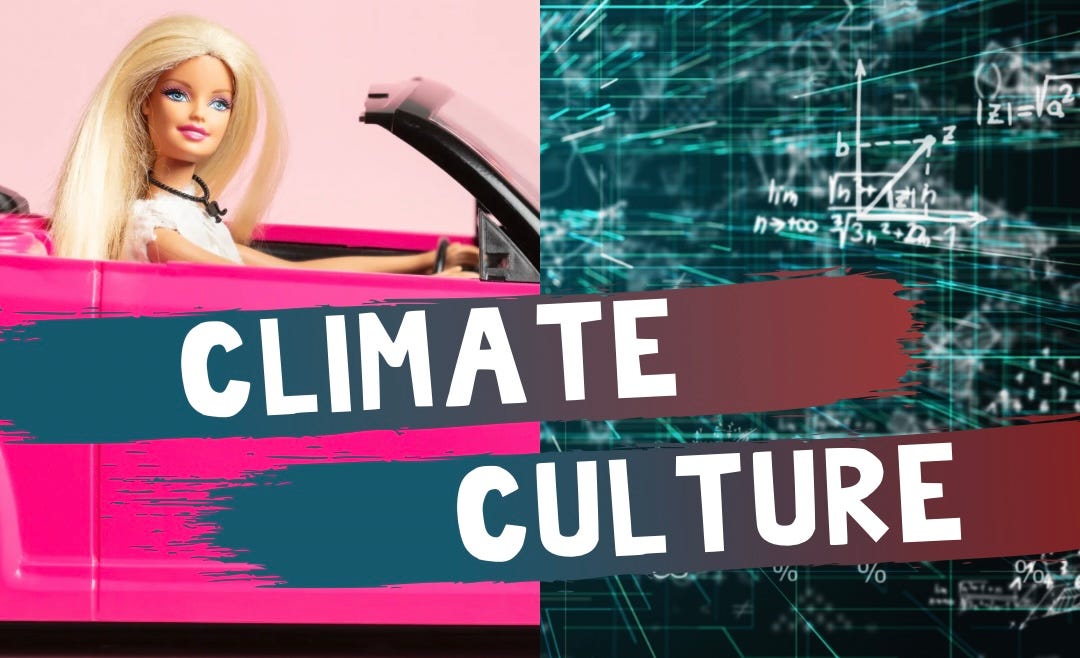Barbenheimer: How different are they really?
The atomic bomb and fossil fuel extraction: both threaten our Earth
Hey everyone! As I’m sure many of you have, I went to both Barbie and Oppenheimer in the past few weeks. Yes, I dressed up in my pink sweater, and yes, I spent hours thinking about the complexities and messages of each movie. People across the nation bought tickets in advance, dressed up, and watched Barbenheimer, – a captivating cultural phenomenon where people saw the movies back to back. Oppenheimer, a movie about the making of the atomic bomb, goes into the complexities of not only the bomb’s creation, but its repercussions and the mental toll it took on those conflicted about its existence – specifically, its creators. Meanwhile, Barbie addressed topics such as what it means to be a woman both in and out of a patriarchal society, with commentary on how the patriarchy oppresses both women and men in an extremely unfavorable manner. Now, you might be thinking, these movies have nothing in common on the surface – and how do they relate to the climate movement? I thought the same thing, until I came across a Washington Post article on Barbenheimer and their anthropocentric relations.
In this article, the author Tyler Harper suggested that the two movies aren’t as different as they may seem, since both promote things that may lead to the end of the world. While one’s topic is quite drastic–the literal atomic bomb, the other offers a lens into consumer culture, and a world where fossil fuels are excessively extracted, leaving an unlivable world behind. Don’t get me wrong: I love the Barbie movie. In fact, I think it is a movie that everyone should see with its message for gender equality. With that said, it also brings to light the popularity of the plastic doll that many people know and love, and it highlights the importance of plastic in our capitalistic consumer society. The atomic bomb may symbolize the end of the world in a very direct manner, but Barbie is the epitome of plastic and is therefore symbolic of climate change, a more indirect, slow-moving end of the world (though starting to feel faster these days…).
After watching Barbie and pondering consumer culture, I was thinking about the connection between pop culture and climate change. Many times when big movies come out referencing something specific, sales in that particular thing go up, and Barbie was no exception. After the premier of Barbie, Mattel’s sales of Barbie dolls went up 200%. This means that even more oil is being extracted and put into the creation of plastic goods (such as Barbies), since oil is a big contributor to plastic. With that said, there has also been a surge of reselling of vintage dolls, which is a huge win for thrifting and reusing goods.
The realization that consumerism is fueled by pop culture extends far beyond Barbie. The idea that we need more stuff, and inevitably, plastic stuff, is embedded into our everyday lives. However, if we continue to disregard the severity of consumerism and climate change, it will become just as fatal as an atomic war. Pop culture makes America and feeds into what we represent and who we are. We are at a critical moment where new ideologies and practices can make a renewed America. If Barbenheimer can have record-breaking opening weekend numbers in cinemas because people rallied behind it, I believe people can get behind environmental initiatives and make an equal if not bigger impact. Every day more and more people back movies, ideas, and singers (I mean come on, think of the Swifties!), and it gives me immense hope for a mass backing of the climate movement. It is time to shift our mindsets out of the idea of an inevitable consumer culture, and into one that treats climate change as drastic as an atomic bomb – because one day it might be.
Thank you for reading, and we hope you’ll take action with our Climate Action Explorer. The time is now, will you be On the Level?


